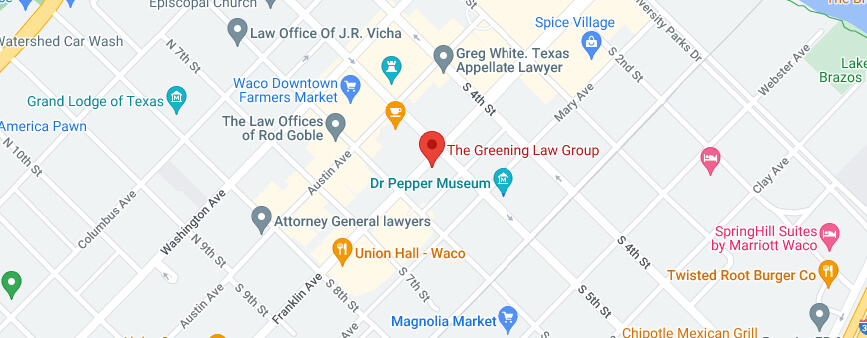What Are the Search and Seizure Laws in Texas?
Sometimes, when police officers suspect someone of committing a crime, they go through the person’s property, vehicle, or belongings to search for evidence related to the crime. Such actions are often contrary to the law because the Fourth Amendment protects people from unreasonable search and seizure by law enforcement officers.
The law stipulates that how search and seizure are conducted will determine if the evidence collected will be admissible in court. Unreasonable procedures in police searches and seizures are one of the effective defenses lawyers from a reputable law firm in Texas can use to defend you if facing criminal charges.
It’s crucial to understand your fundamental rights when police officers stop, search, arrest you, and seize evidence to use against you. Lawyers with experience in criminal law provide an overview of what constitutes lawful search and seizure.
When is a Police Search Unreasonable?
The Fourth Amendment disallows unreasonable searches and seizures, with the rule applicable at the state and federal levels. The laws limit law enforcers’ power, and if they overstep their mandate, you can file a motion to suppress evidence with the help of skilled criminal defense lawyers in College Station and Waco, Texas.
A search by police officers is unreasonable if:
- The officers lacked probable cause to search your person, home, or property
- The police lacked a valid search warrant
- The search doesn’t fall within the scope of recognized exceptions to the warrant requirement.
Examples of Unreasonable Search and Seizure?
Cases of unreasonable search and seizure are rampant, and listing every instance wouldn’t be possible. However, skilled criminal defense attorneys highlight the following outstanding examples:
- Police officers stop you, search your person or pockets, or part you down without giving you a reason
- Law enforcement officers stop you on the street and search your bag or pursue
- Officers enter your home and begin a search without a warrant
- Officers search your car after stopping you for speeding
If any of these or similar circumstances happen to you, consult skilled criminal defense lawyers in Texas immediately to protect your rights.
Examples of Reasonable Search and Seizures
Some examples of reasonable searches that police could conduct even without a search warrant, based on reasonable suspicion, are:
- The police officers can smell drugs or alcohol
- Drugs or alcohol in your car or home are in plain view of the officers
- You’re a threat to public safety
- You fled from authorities, leaving behind your possessions
- Your vehicle or possessions have been impounded and are in police custody.
In such cases, law officers must have your consent or probable cause to search. Ensure you note the events that led to a warrantless search and share the details with your criminal defense lawyers. They can evaluate the case to ensure the police didn’t violate your rights during the search.
What is a Valid Search Warrant?
When law enforcers conduct a search based on a warrant, it must be valid. A magistrate writes a search warrant, directing law enforcers to search a particular place for certain types of evidence. Judges only issue search warrants when police officers show beyond reasonable doubt that they have probable cause to believe a crime was committed.
When requesting a search warrant, officers must attach an affidavit that spells out the facts and circumstances creating probable cause, such as:
- The specific crime the officers believe to have been committed
- An explanation of the evidence or the crime and why the place and property to be searched are connected to the evidence
- A statement that the evidence is to be found where the search is to be done.
The affidavit must be signed and submitted under oath to the magistrate. Criminal defense attorneys explain that a search warrant is invalid if it fails to establish probable cause. A court can also invalidate a search warrant if it finds that the police were untruthful in the affidavit.
What Are Some Exceptions Where Officers Can Conduct a Warrantless Search?
The Texas Code of Criminal Procedure defines specific situations allowing law officers to search and seize without a warrant. If it falls within these exceptions, the court will not consider it a violation of your Fourth Amendment rights:
- The search was connected to a lawful arrest
- You consented to the search
- The search was in your vehicle, and police had probable cause to believe you were carrying contraband, proceeds of a criminal act, or critical evidence.
- Extraordinary circumstances required the law officers to prevent the evidence from destruction, for example, if the police obtained the evidence after a hot pursuit.
- The evidence was in the clear view of the officers.
- The officers acted to protect life; for example, if you demonstrated that you posed a danger to the public, and you could have escaped if the police didn’t make an immediate arrest.
- The evidence was in a place where you had no reasonable expectation of privacy.
An Experienced Criminal Defense Attorney Providing Legal Guidance on Search and Seizure in Criminal Cases
You may think that you understand arrest, search, and seizure, but from a legal perspective, there’s much that you may not fully comprehend. It’s crucial to understand what the law says about these procedures and how courts determine if police violated your rights. Skilled criminal defense attorneys in College Station and Waco, Texas can defend you if they believe your search and seizure were unreasonable.
The Greening Law Group is a top-notch criminal defense law firm in Texas. We host aggressive and experienced attorneys who can passionately defend you when the system is against you. Whatever criminal charges you’re facing, let us evaluate if the police had reasonable suspicion or probable cause to search or arrest you. We can find loopholes to enhance a favorable outcome. Call us at 979-406-5756 to schedule a FREE case assessment.









